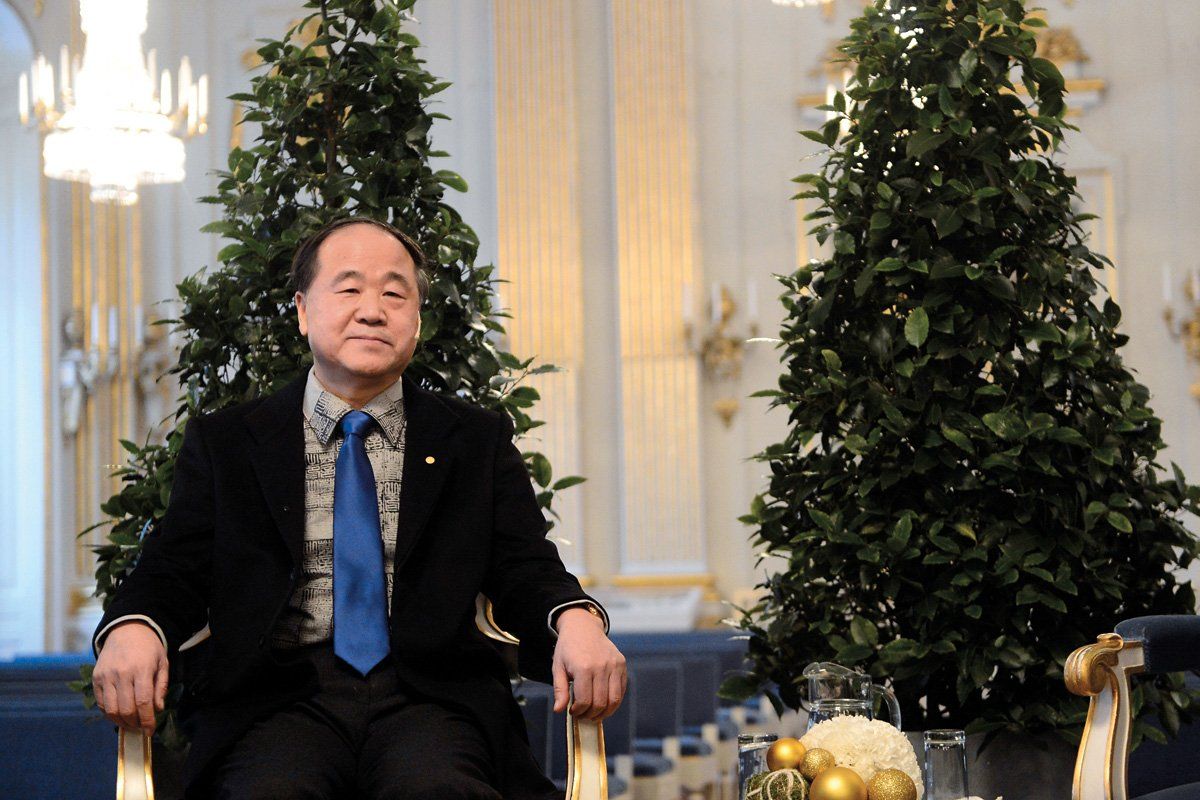
'Don't Speak'
Anyone reading the Nobel Prize acceptance lecture of this year's literature laureate could be forgiven for thinking that the writer is a bit of a mush-pot, so full is it of tear-jerking, almost schmaltzy anecdotes about his late mother. Nothing could be further from the truth. Mo Yan—or "Don't Speak," the pen name by which the Chinese novelist goes—may be a mama's boy, but he's no dewy-eyed sentimentalist. Speaking in Stockholm, Mo expressed support for censorship, likening its necessity to that of airport security: "When I was taking my flight, going through customs ... they also wanted to check me—even taking off my belt and shoes. But I think these checks are necessary." So, too, with defamation or rumors, which "should be censored." Mo added delphically that he hoped that censorship "should have the highest principle," the most charitable interpretation for which could be that he is against its capricious use. The writer's remarks came in the wake of his refusal to join 134 other Nobel laureates in signing a petition that calls on Beijing to release Liu Xiaobo, the 2010 Peace Prize winner, from jail. All of which would appear to lend credence to the criticism leveled against Mo by a fellow literature-prize winner, Herta Müller. In an interview last month, the Romanian writer, laureate in 2009, described the award to Mo, a member of the Chinese Communist Party, as "incredibly upsetting" and a "catastrophe." (Müller toiled for years under the remorseless censorship of Nicolae Ceauşescu.)
Muzzled Ministers
David Cameron's image as a decent sort of chap took a hard knock last week after Britain's Channel 4 revealed that the prime minister's office had barred two cabinet ministers from meeting the Dalai Lama in London in June. Tim Loughton and Norman Baker, ministers, respectively, for family affairs and transport, had been given permission to attend a lunch on June 20 for the Tibetan spiritual leader, hosted by the Tibet Society. A mere 90 minutes before the event, the green light turned to red. Loughton told the TV channel that "I had a whole barrage of calls" from Cameron's office ordering the two to stay away from the Dalai Lama. They had no option but to comply, even though their absence from a small private lunch was "deeply embarrassing." They wrote an angry letter, afterward, to Cameron, expressing their "annoyance."
Net Nanny
Have you heard of the International Telecommunication Union? You haven't? Well, it's time to sit up and take notice, because the ITU is pressing hard to bring the Internet under the regulatory aegis of the United Nations. The international agency was founded in 1865, mainly to set up rules for the newly invented telegraph; extrapolating from its hold over telegraphy, it is now making a grab for the Web. At risk is the current right of Internet users to remain anonymous, with Russia and Iran pressing for a change to Internet rules that would allow governments to know a user's identity. (Now why would the Russians and Iranians want that, we wonder.)

Lady of the House
While parliamentary debate takes many forms in many lands, it is usually marked by an absence of amorousness. Sri Lanka's lower house, however, broke new ground when the country's transport minister, Kumara Welgama, stood up to respond to a question put to him by Rosy Senanayake, an opposition M.P., on the condition of the state Transport Board. Senanayake is no ordinary legislator: a former Miss Sri Lanka and Mrs. World, her Wikipedia entry describes her as "the most beautiful female politician in Sri Lanka." The minister responded by saying "I am very happy a pretty lady like her is asking me questions." And on he gushed: "You are such a charming woman ... I cannot explain my feelings here. But if you will meet me outside parliament I will describe them." Extending the taking of liberties to the grammatical sphere, Welgama told lawmakers that "when I see her, my thoughts are running riots which I don't want to reveal to the public." Senanayake, a politician of 20 years' standing who has been Sri Lanka's ambassador in Malaysia, was distinctly unamused. "I consider it an insult," she responded.
With Luke Darby & Jane Teeling
Uncommon Knowledge
Newsweek is committed to challenging conventional wisdom and finding connections in the search for common ground.
Newsweek is committed to challenging conventional wisdom and finding connections in the search for common ground.





